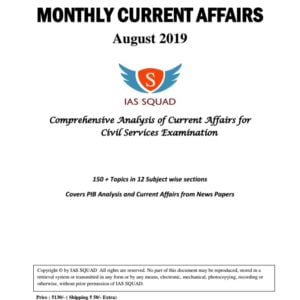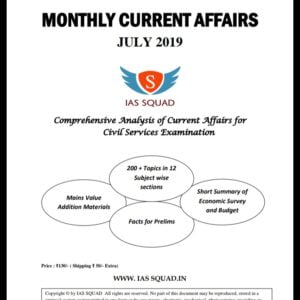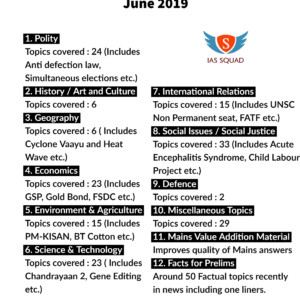Daily Current Affairs for UPSC CSE
Topics Covered
- SC recalls verdict diluting SC/ST anti-atrocities law
- Deep Carbon Observatory (DCO)
- Do you know your Mahatma
1 . SC recalls verdict diluting SC/ST anti-atrocities law
Context : Supreme Court recalled its directions in a March 20, 2018 verdict that had effectively diluted provisions of arrest under the Scheduled Castes & Scheduled Tribes (Prevention of Atrocities) Act, 1989. This was following a plea by the Centre seeking a review of that judgment.
Background
- Since crimes against SCs and STs are fundamentally hate crimes, the Rajiv Gandhi government enacted the Act in 1989 in furtherance of the provisions for abolition of untouchability (Article 17) and equality (Articles 14, 15) in the Constitution.
About Subhash Kashinath Mahajan Case
- Mahajan was Director of Technical Education in Maharashtra. Two non-SC officers had made an adverse entry on the character and integrity of a Dalit employee, whom Mahajan in 2011 denied sanction for prosecution against those officers.
- The denial was challenged on the ground that the state government and not the director was the competent authority.
- The Supreme Court held that safeguards against blackmail are necessary as “by way of rampant misuse, complaints are largely being filed against public servant/ judicial officer/ quasi- judicial officer with oblique motive for the satisfaction of vested interests”.
How the 2018 verdict diluted the law and what review judgement reinstated
- Anticipatory Bail :
- Keeping in view the special nature of crimes against Dalits in Section 18 of the Act, Parliament had laid down that the provision of anticipatory bail under Section 438 of the Criminal Procedure Code of 1973 will not be available to an accused under the Act.
- The provision of anticipatory bail was introduced for the first time on the recommendation of 41st Law Commission in 1973. It is a statutory right, not part of the right to life and personal liberty under Article 21 of the Constitution, and thus there is no fundamental right to anticipatory bail. A few state amendments to Section 438 exclude anticipatory bail.
- In the March 20, 2018 judgment, the Supreme Court laid down safeguards, including provisions for anticipatory bail and a “preliminary enquiry” before registering a case under the Act.
- Upon review the Bench said Section 18 was enacted to instil a sense of deterrence and relied on Kartar Singh (1994) in which the court had held that denial of anticipatory bail does not violate Article 21.
- FIR:
- Court ordered that neither is an FIR to be immediately registered nor are arrests to be made without a preliminary inquiry by an SSP.
- An arrest can only be made if there is “credible” information and police officer has “reason to believe” that an offence was committed.
- As per the review judgment, public servants already have a remedy in false cases under CrPC Section 482 and can get such FIRs quashed by High Courts. He rejected the need of an SSP’s approval for arrest.
- Section 4 of the SC/ST Act casts a specific duty on public servants to record an FIR as per information given. Non-registration of FIR is punishable. Section 22 protects public servants for actions taken in ‘good faith’, for which no legal proceedings can be initiated against them.
- Permission:
- In 2018, the court had said that even if a preliminary inquiry is held and a case registered, arrest is not necessary, and that no public servant is to be arrested without the written permission of the appointing authority. The court extended the benefit to other citizens and said they cannot be arrested without the written permission of the SSP of the district.
- Upon review the decision on arrest is to be taken by the investigating authority, not the appointing authority.
- Other Provision :
- Judgement had observed that “interpretation of Atrocities Act should promote constitutional values of fraternity and integration of the society. This may require ‘check on false implication of innocent citizens on caste lines’.” Observing that the law should not result in caste hatred, the court overlooked the fact that the Act had to be enacted due to caste hatred.
- The review judgment said that such riders for registering a report are wrong and it would give an advantage to upper castes whose complaints can be registered without any such inquiry.
2 . Deep Carbon Observatory (DCO)
Context : The Deep Carbon Observatory (DCO), a strong international team of scientists, released a series of papers outlining how carbon is stored, emitted and reabsorbed by natural and manmade processes.
About Deep Carbon Observatory
- The Deep Carbon Observatory (DCO) is a global community of more than 1000 scientists on a ten-year quest to understand the quantities, movements, forms, and origins of carbon in Earth.
Key Findings
- They found that manmade carbon dioxide emissions drastically outstrip the contribution of volcanoes — which belch out gas and are often fingered as a major climate change contributor — to current warming rates.
3 . Do you know your Mahatma?
Questions
1. In the Mohandas Karamchand Gandhi family tree, who are Raliyatben, Laxmidas and Karsandas?
Answer : His siblings, born of same mother Putlimai
2. Name the Tamil girl, martyred at 16, whom Gandhiji has gone on record as saying was an inspiration for him to stay the course in the fight for equality in South Africa.
Answer : Thillayadi Valliammai
3. An incident that took place on the night of June 7, 1893, acted as a catalyst for Gandhiji to fight against race and colour prejudices. Where and what?
Answer : He was thrown out at the Pietermaritzburg station even though he had a valid FC ticket
4. After many campaigns and arrests in South Africa, Gandhiji returned to India on January 9, 1915. How is the date commemorated?
Answer : Pravasiya Bharat Diwas
5. In late 1919, he assumed the editorship of two publications. Name both.
Answer : Navjivan and Young India. He started Harijan in 1933
6. On September 22, 1921, what momentous decision did he take in Madurai that changed the way the world looked at him?
Answer : He decided to attire himself in only a dhoti/loincloth and a shawl,
7. Who was responsible for giving Mohandas Gandhi the title ‘Mahatma’ and who is said to have first referred to him as ‘Rashtriyapitha’ (Father of the Nation)
Answer : Rabindranath Tagore and Subhas Chandra Bose
8. The apostle of Peace was nominated for the Nobel Prize five times between 1937 and 1948 without winning even once. How did the Nobel Committee honour the Mahatma after he was assassinated?
Answer : It decided not to award the 1948 prize to anyone
9. Which genius paid this wonderful tribute to Gandhiji: “Generations to come will scarce believe that such a one as this ever in flesh and blood walked upon this earth”?
Answer : Albert Einstein


